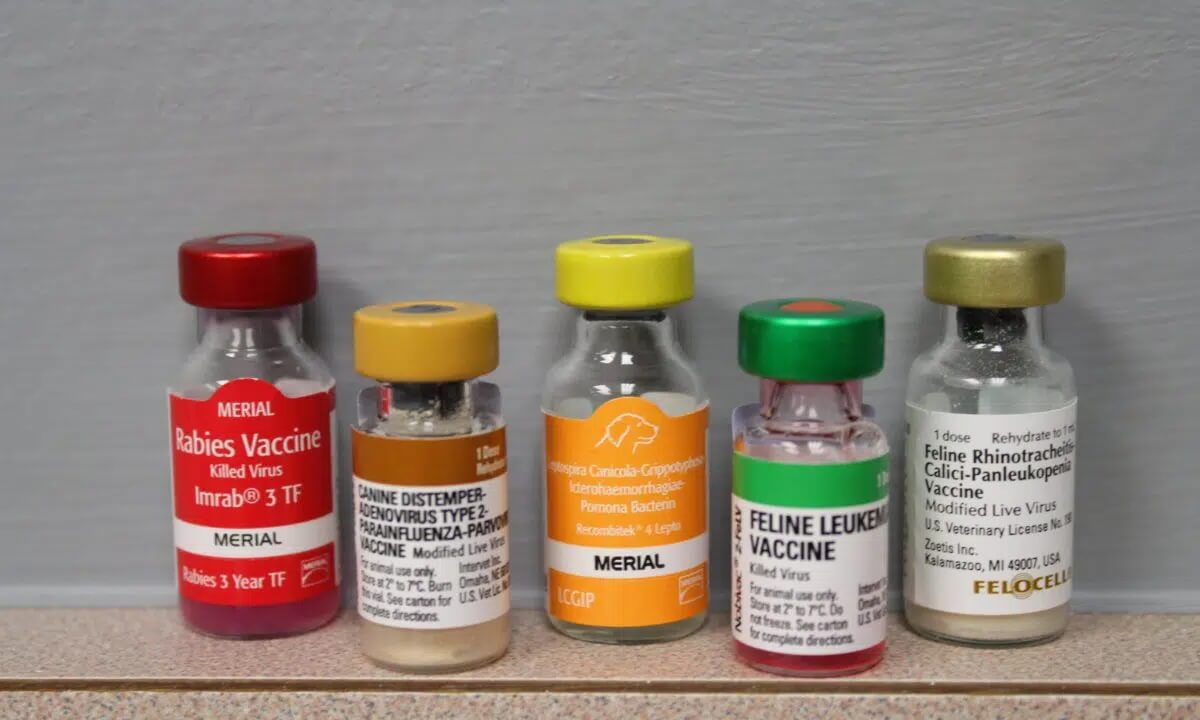No need to worry about your Pet’s wellbeing. We have you covered.
 Vaccines are designed to encourage protective immune response by preparing the immune system to fight future exposure to disease-causing agents. These inoculations stimulate the immune system’s production of antibodies that identify and destroy disease-causing organisms that may enter the body.
Vaccines are designed to encourage protective immune response by preparing the immune system to fight future exposure to disease-causing agents. These inoculations stimulate the immune system’s production of antibodies that identify and destroy disease-causing organisms that may enter the body.
In other words, these shots are formulated to help the body create special cells called antibodies. Antibodies help destroy germs that cause diseases.
There are many reasons to vaccinate your pet, including:
- to prevent the transfer of many diseases which your pet may be exposed to from local wildlife.
- to prevent illnesses and diseases that can be passed between animals and people.
- to meet local or state ordinances requiring certain vaccinations of household pets.
Suggested Pet Vaccination Schedule
We recommend 5 inoculations for our canine patients and 2 to 3 for our feline patients depending on their lifestyle.
In general, for dogs:
- Canine distemper (Distemper, Adenovirus, Parainfluenza, and Parvovirus) is given 2-3 times, 3-4 weeks apart initially, given a booster one year later, and then every 3 years.
- Leptospirosis is given twice, 3-4 weeks apart initially, and then given a booster every 12 months.
- Bordetella Bronchiseptica is given 1-2 twice initially, then given a booster every 12 months.
- Canine Influenza is given 2 twice initially, then given a booster every 12 months.
For cats, Rabies vaccinations follow the same schedule as described in dogs, above.
- Feline distemper abbreviated FRCP+Ch (Feline Rhinotracheitis, Calicivirus, Panleukopenia, and Chlamydia Psittaci) is administered 2-3 times, 3-4 weeks apart initially, given a booster a year later, and then every 3 years.
- If a cat is not strictly indoors, we would recommend a Feline Leukemia (FeLV) vaccination after appropriate testing. FeLV is administered twice, 3-4 weeks apart initially, and then given a booster every 12 months.
An example New Pet Vaccination Schedule is as follows:
As a puppy, your dog will need a series of inoculations to help them stay healthy and protected from various diseases. The recommended schedule our office follows for a new puppy is as follows:
- First vaccine at 8 weeks old
- Second vaccine at 12 weeks old
- Third vaccine at 16 weeks old
- Rabies vaccine at 16 weeks old or older (required by law in some states).
Your puppy will also need to be vaccinated annually for rabies and other diseases. Rabies is required by law. A dog would receive an initial 1-year rabies vaccination then a booster a year later that would be good for 3 years – if done on time.
As a kitten, your cat will need a series of inoculations to help them build up immunity to disease. Kitten vaccinations are important to help protect them from serious diseases such as feline leukemia virus (FeLV) and rabies. The kitten schedule our office follows includes the following:
- First vaccine at 8 weeks old
- Second vaccine at 12 weeks old
- Third vaccine at 16 weeks old
A booster vaccination is usually given at one year of age, and then every three years thereafter. Your Veterinarian will recommend a vaccination schedule that is right for your cat, based on its age, health, and lifestyle.
Most Veterinarians agree that vaccinations are generally not necessary for pet rabbits, hamsters, or guinea pigs, as they are considered relatively low-risk animals. However, if you decide to have your pet vaccinated, discuss the best vaccination schedule with your provider.
If you feel your adult pet has missed vaccinations, your Veterinarian can help determine the best schedule for them going forward to ensure they have a long, happy life.
As with all pet care, be sure to check with your Veterinarian to understand the benefits/risks of vaccinations.
*Click for the Colorado-specific ordinances for pet animals.
Click to Schedule your Pet’s Vaccination Online Now.
Would you rather call? (720) 306-9900
